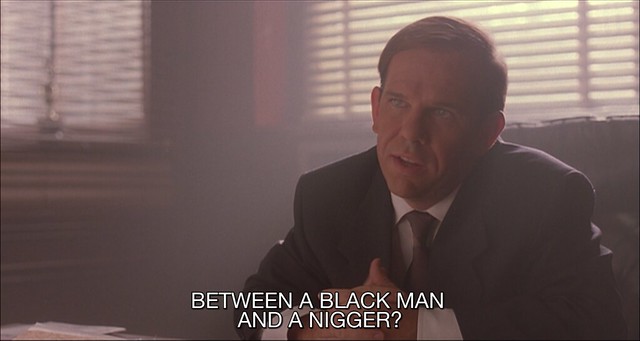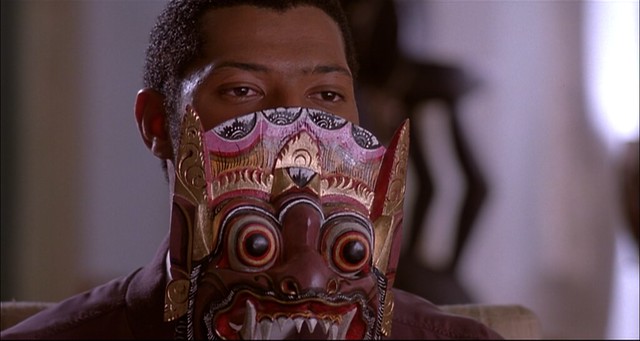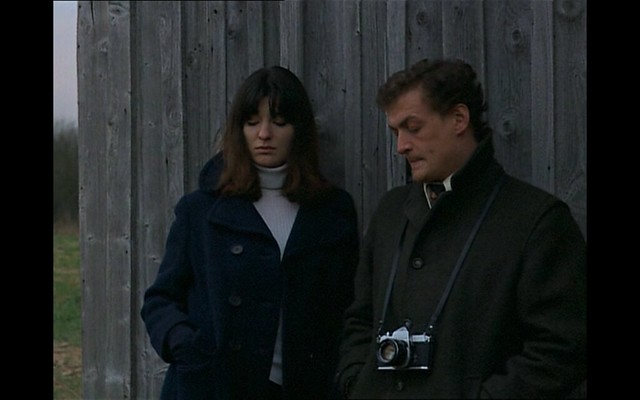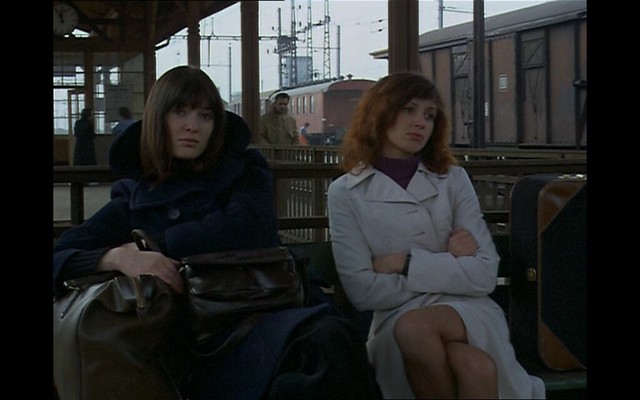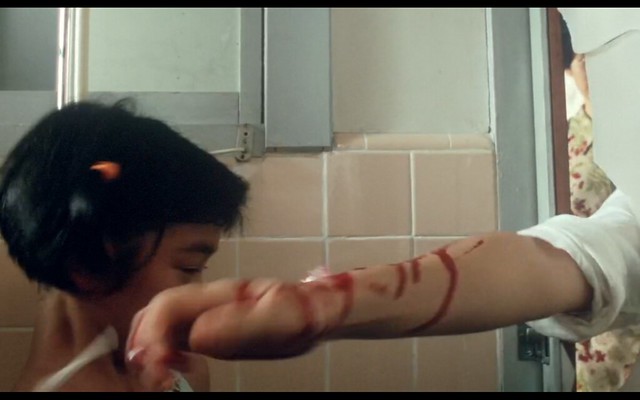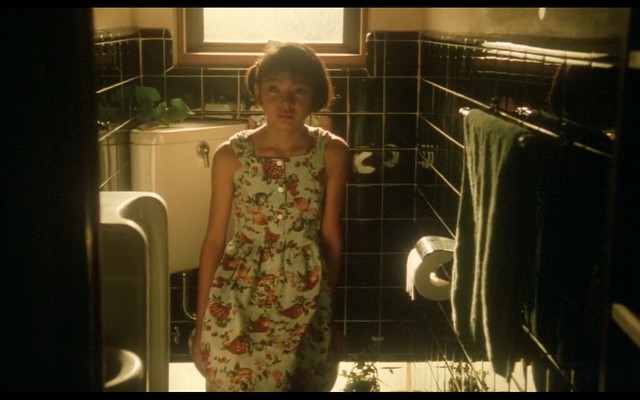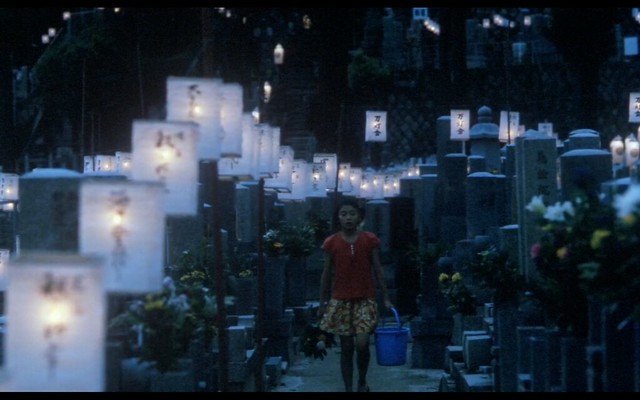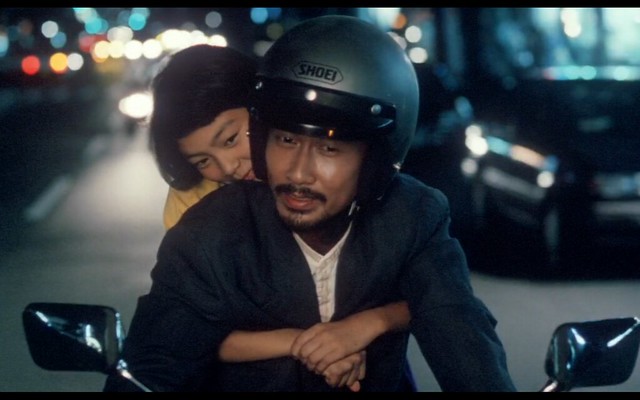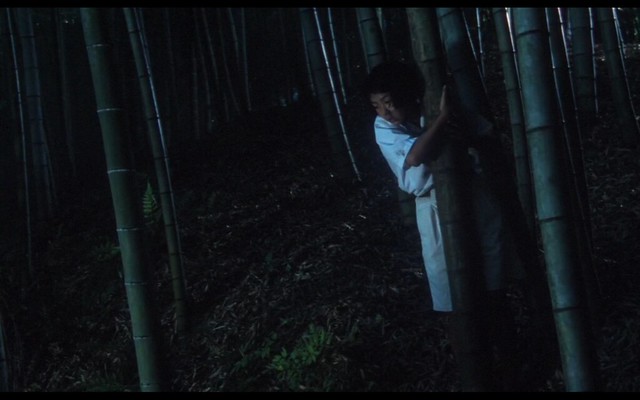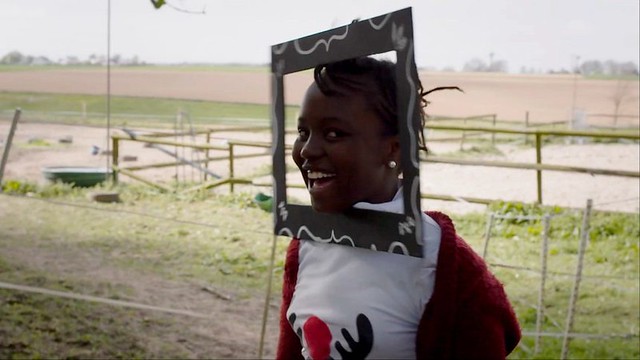 Éric Baudelaire, a French visual artist, filmmaker (Letters to Max, Anabasis of May and Fusako Shigenobu, Masao Adachi, and 27 Years Without Images), was commissioned to do a project with the newly constructed Dora Maar middle school in the suburb of Paris, spent 4 years working with middle school kids as they recorded themselves their daily lives. The result is not only a refreshing slices of life documentary on close to two dozen sixth grade students as they grow up in front of our eyes, but also a incisive contemplation on the nature of filmmaking itself.
Éric Baudelaire, a French visual artist, filmmaker (Letters to Max, Anabasis of May and Fusako Shigenobu, Masao Adachi, and 27 Years Without Images), was commissioned to do a project with the newly constructed Dora Maar middle school in the suburb of Paris, spent 4 years working with middle school kids as they recorded themselves their daily lives. The result is not only a refreshing slices of life documentary on close to two dozen sixth grade students as they grow up in front of our eyes, but also a incisive contemplation on the nature of filmmaking itself.
Baudelaire, with Social Science academic background, previously made documentaries regarding a daughter of Japanese Red Army founder and also Adachi Masao, a radical militant leftist Japanese New Wave director, as they collaborated on turning the camera not on subject but toward landscapes in which the subject has lived, trying to put into practice Adachi’s Landscape Theory. With Un Film Dramatique, he puts the cameras in the hands of its subjects. And the result is surprisingly touching examination and revealing reflection of a multicultural society.
Dora Maar is a public school, situated in a not so affluent but a racially and culturally mixed neighborhood. It's a microcosm of modern multicultural, pluralist France represented in one classroom. Students are from diverse backgrounds and many of them are descendants of immigrant families and everyone has his/her own little story to tell. But it's those discussions in classroom are extremely revealing and insightful.
In diverse subject from religion, identity to politics, these little runts prove to be much more astute and knowledgeable about the world around them. The filming started amidst the series of terrorist attacks by Islamic terrorists that hit France. As Marine Le Pen, the head of the ultra nationalist, right wing party the National Rally, was running a presidential election, their discussion turns to racism and how the immigrants are being scapegoated and prejudiced against by Le Pen's rhetoric, that they see her as blatant racist. As these fascinating, no holds-barred in-class discussions show that they are like sponges, absorbing everything they see and hear and fully aware of their surroundings.
They learn about each other by seeing their home footage as they travel to their parents home country, be it Romania or French overseas region of Réunion in the middle of the Indian Ocean.
Living in a media saturated age, these kids are much more savvy recording themselves but also extremely conscious about their screen presence. Baudelaire chooses to show not only their most revealing moments but also them being kids, as they fumble around and make mistakes.
The title Un Film Dramatique comes from the kids’ discussion about the film they are making. Is it a documentary? But the sound needs synchronization via slating and ambient sound also needs to be added. In their minds, a documentary is truth being recorded, so no manipulation. There are stories, in the film they are making, there's drama, hence dramatique. The film is refreshing documentation of the lives of middle school students reflecting on changing French society as well as a boundary breaking, playful cinematic experiment.
Un Film Dramatique opens 2/26 virtually. Please visit Cinema Guild for playdates in venues.

